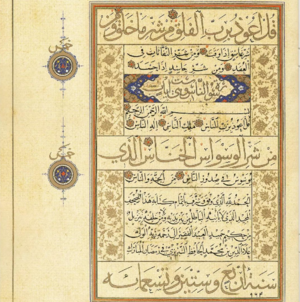What is meant by the word “Ahl al-Bayt” in al-Tathir verse? According to the context of this verse and the verses before and after it, does this word include the wives of the Prophet (s)?
According to Shi'a and many Sunnis, “Ahl al-Bayt” in the verse of Tathir (33:33) is a special title that includes Prophet Muhammad (s), Ali (a), Fatimah (s), al-Hasan (a) and al-Husayn (a). This interpretation has been narrated in Shi'a hadiths and some Sunni hadiths.
Although the verses before and after the verse of Tathir (literally means purification) are addressed to the wives of the Prophet (s), exegetes do not consider the verse of Tathir to be related to the wives of the Prophet (s). It is mainly because the verses addressing the wives of the Prophet (a) contain the threat of divorce, punishment and the order to stay at home, while the verse of Tathir is associated with honor and respect. Moreover, the pronouns in these seven verses are feminine, while the two pronouns in the verse of Tathir are masculine.
In addition, some believe that if the wives of the Prophet (s) had this honor to be an instance of “Ahl al-Bayt” in this verse, it should have been mentioned by them or at least by those who were related to them, while none of these people have mentioned this virtue for them.
